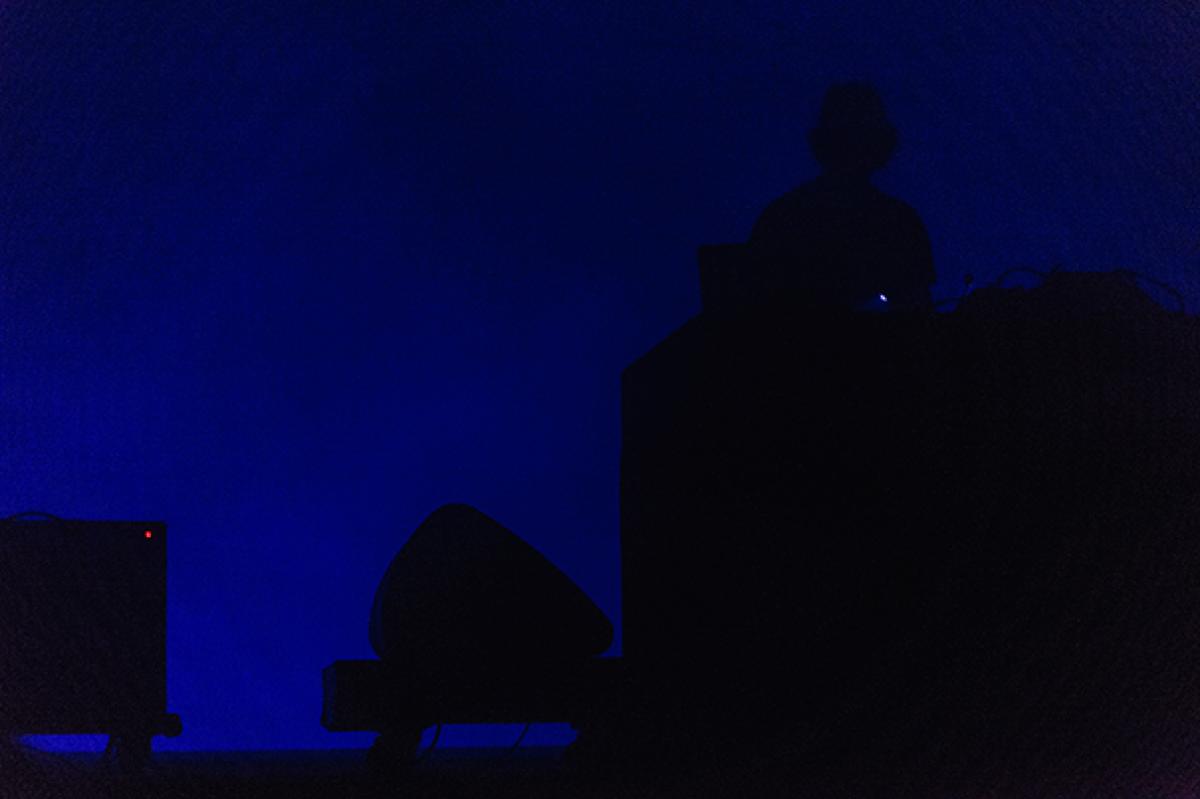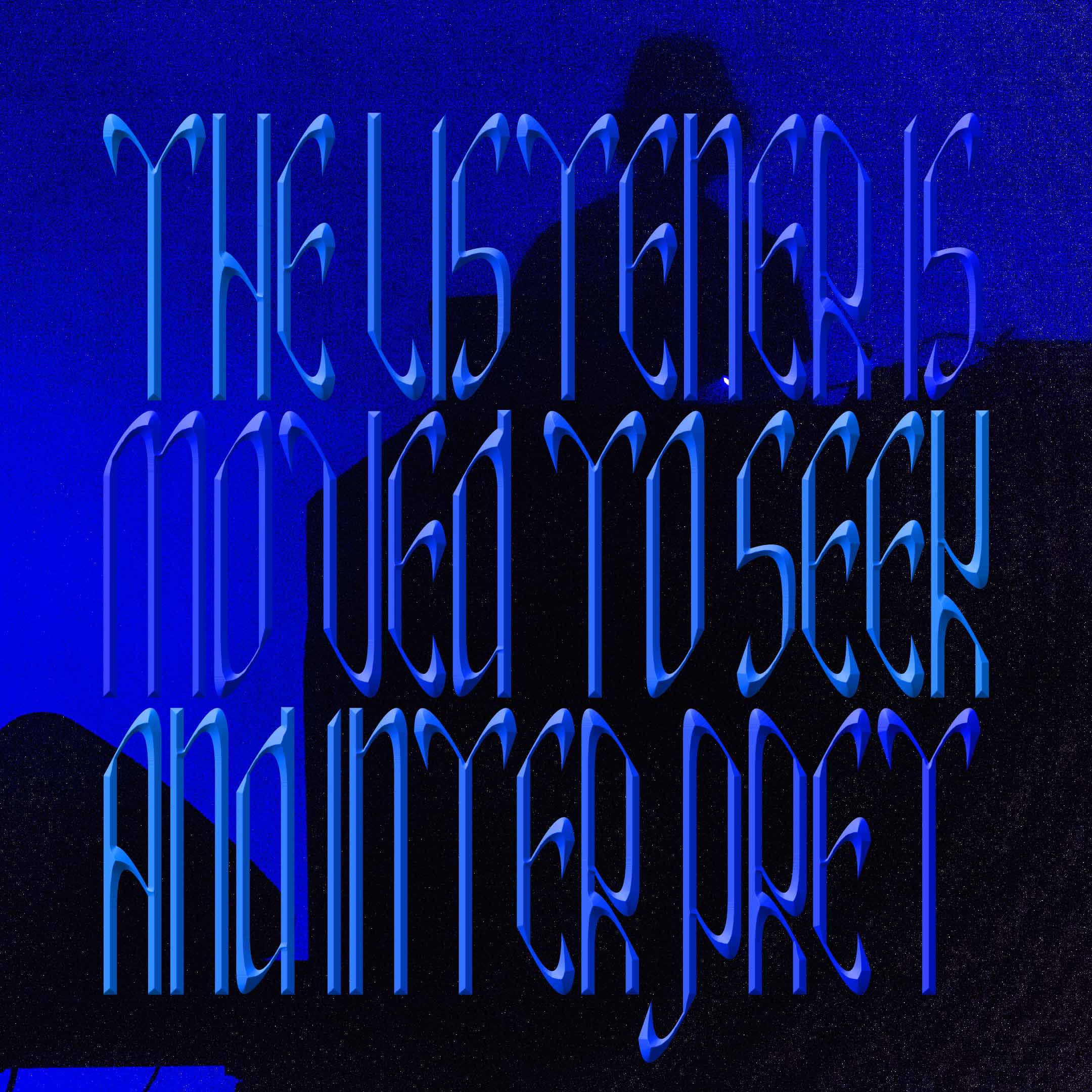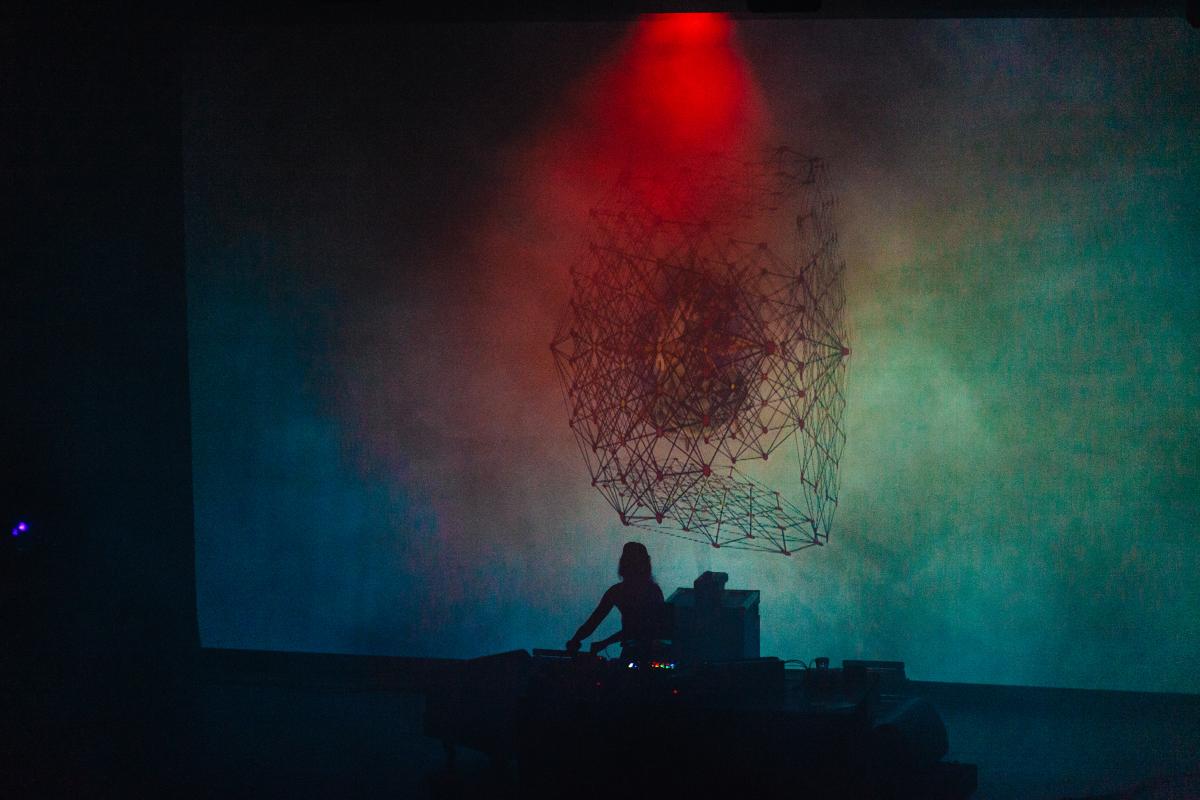
Sculptor of Affect: Tim Hecker
The electronic musician Tim Hecker is like an aesthetic engineer whose visceral live concerts deconstruct musical meanings.
Navigating the sound art of Tim Hecker’s live experience is like a tour of the palpability of sound and it’s spatial resonance. His performances often unravel in a visceral way, utilizing the whole of a given space through an arrangement of all-encompassing frequency arrangements. His music is micropolitical in its surgical extraction of sonic qualities and it’s penchant toward grandness in the midst of that extraction. As a spectacle, Hecker’s brand of ambient drones challenge a listener’s orientation, producing an audio-architectural program that loosely guides the organization of gestures and emotion within a performance space. Filling rooms with fog and strategically placing slithers of strobes, Hecker offers a space for an active mode of listening, both within the public sphere of a venue but also the private sphere of a romantic submission to the overflow of feeling. A listener is moved to seek and interpret, and in some ways breathe the circulation of affects that have been crushed and re-synthesized for its opaque texture, surfacing for a duration of time.
Economy of Affect
The act of evisceration in sound art serves as a way to clean the slate of taste and expectation. In the western tradition of concerts, the listener stares at the performer, poised and mildly open to experience. Symbols and whole meanings are aesthetic entrapments, limitations placed on the condition of a listening experience. An artist, in this case, Tim Hecker, is placed as a type of aesthetic engineer who is tasked to evaluate and transform the given blank canvas of floor space and extract expressions of emerging economies of sense that naturally flow between bodies, accounting for its space. We know classical compositional structure to be the proper way of considering and arranging sound and sense, but their measurements account for only a single layer of the multiple scales in which sound can inhabit. Music as a term is an aesthetic misnomer, a misguided method of frequency regulation. Tim Hecker considers the construction of meaning that has been developed around a tradition of sound and forcibly rearranges the chess-like pattern of social behavior that accompanies it.
The shared experience of a performer and their audience is a valueless currency and an inventory of lush, fevered signs of awe. Performance can dramatize an ecology and an ease of sensory information exchange. Hecker’s fog establishes an economy of affect, of overwhelming excess that is profoundly enveloping. The circulation of musical content in the gradient registers of a space offer that listening can be a neutral archival and aggregation tool while also suggesting that a listener is a bodiless explorer of distorted ancestrality across the inspecting platform of «conversation» in the public sphere.
Psychoanalytic Perspective
The primal potency intrinsic to any life form and the adhesive holding together the social fabric is the exchange and manipulation of affect. Either abstract or concrete, the information exchanged between bodies at the level of bodies is contained within, but also grows its own natural architecture. There are natural barriers and guidance in the architecture of listening experiences that come with a natural marker of the rhythms of everyday life, everywhere in life. Tim Hecker sculpts with matter and memory and moments and intentions of constellations of sentiment taking a psychoanalytic perspective towards architectural programming, how it contains and shapes the flow of energy; and producing a music (and visual) that is not just limited to the body, but how it is encoded in the environments developed around it. Recognition and inventory of codes is a type of end of history, the tying of the knot of a learning curve.
Listening thereafter is haunted, and nostalgia a breakdown of sensibility. Haunted listening and nostalgia in music is then a consensual process towards disengaging meaning from modes of signs in music. Placing an emphasis of being present when listening and feeling, Tim Hecker’s drones overwhelm and offer a space beyond the history of one’s everyday movement, encouraging a deep dive into wellness through immersion.
Biography
Published on June 02, 2018
Last updated on April 10, 2024
Topic
About the micropolitical qualities of sound as a non-conscious experience of intensity.
Special
Snap

